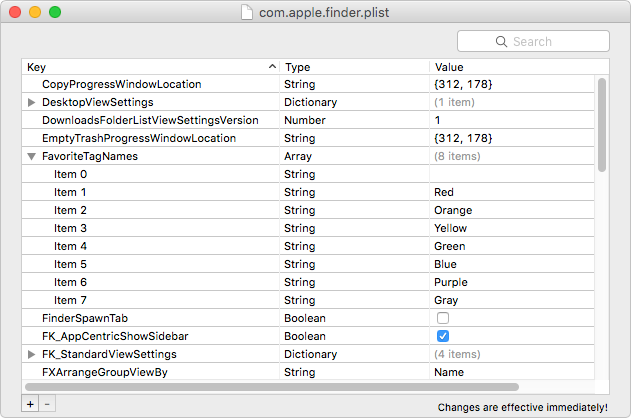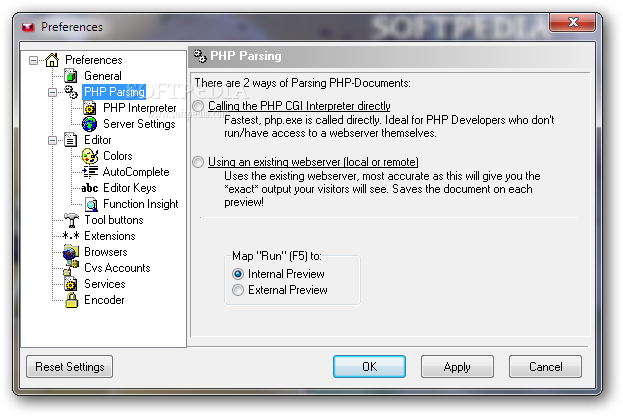고정 헤더 영역
상세 컨텐츠
본문
However, PLIST Editor comes in at a much lower price point (US$3.99 on the Mac AppStore). Its feature set covers all the necessities. Its feature set covers all the necessities. It can open property list files with file extensions other than.plist (for those pkginfo or recipe files you want to edit) and supports drag and drop and undo and even. IPodRobot plist Editor for Windows is a software that can edit both of XML format and Binary format Mac OS property list file (.plist) under Windows system.
Terminal User Guide
Preference and configuration files in macOS use property lists (plists) to specify the attributes, or properties, of an app or process. An example is the preferences plist for the Finder in the Library/Preferences/ folder of a user’s home folder. The file is named com.apple.finder.plist. The default naming convention for a plist includes the distributor’s reverse DNS name prepended to the app or process name, followed by a .plist extension.
To edit property lists, use the defaults command-line tool. The defaults command is a powerful tool and, when you know the specific key and value in a property list you want to change, the defaults tool is very efficient.
The defaults tool works directly with the macOS preferences subsystem and is used by many apps in macOS to manage preferences and other settings. It can be built into shell scripts and lets you access preferences in the multiple domains that exist on a given computer.
Determine the names of the appropriate property list, key, and values. For example, the name for the Dock’s property list is
com.apple.Dock.plist. (When invoking the defaults command, omit the .plist extension.)Enter the values following the
defaultscommand:Restart the app or process, if necessary.
A simple way to do this is to use Activity Monitor to select the appropriate process, then click Quit Process. For this example, you would choose the process named Dock.
You can also edit property list files in Xcode, which provides a built-in property list editor. To use Xcode, double-click a .plist file in the Finder.
If you don’t have Xcode installed on your Mac, download it from the Mac App Store.
- macOS v10.13 and later
PlistEdit Pro is the most advanced property list and JSON editor written for macOS.
Mac and iOS developers must edit a variety of property list and JSON files while developing their applications. PlistEdit Pro makes editing these files easier by providing an intuitive and powerful interface. In addition to being able to copy and paste or drag and drop property list data around, PlistEdit Pro also offers powerful find and replace functionality, as well as structure definitions which provide easy access to commonly used keys in various standard property list files.
Video Editor Mac Free
Power users can also benefit from PlistEdit Pro's preferences browser, which allows easy access to property lists used by macOS to store settings on your system. Browse through your preferences, or search an entire folder of plist files at once for a particular key or value. PlistEdit Pro also enables automation of tasks involving property lists, via its Applescript support and its pledit command line tool.

Screenshot Gallery

Click on the images below to enlarge.
Feature List
- What a Drag
Sick of fiddling with XML and JSON? PlistEdit Pro offers full copy + paste and drag and drop plist editing. - Oops
Features unlimited undo support. - Playing Favorites
Assign keyboard shortcuts to open your favorite property list files. - Under the Hood
See how your property list looks both in an outline and as raw XML or JSON text.
- Key Features
Full keyboard navigation: edit your property lists without ever having to touch the mouse. - Preferential Treatment
Easily tweak your preferences files using the built-in preference browser. - The Search is On
Easily find and modify property list keys and values using the built-in find panel. - By the Script
Automate your development tasks using PlistEdit Pro and Applescript.
Pdf Editor Mac Free





